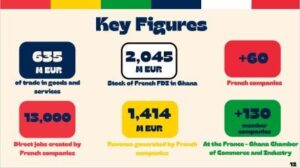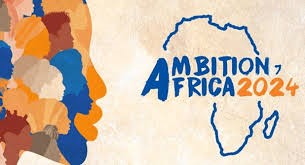By William Selassy ADJADOGO
France in recent years has changed its approach with regards to its relationship with Africa. The new relations is rooted in cultural influence, loyalty and first and foremost, shared history and mutual respect.
President Emmanuel Macron on assumption of power has tried to distance himself from established and widely criticized patterns of France’s Africa policy. He diversified relations with Africa and cultivated a comparatively open approach to France’s problematic past on the continent.
Undoubtedly, he was aware of France’s reputation problem in Africa and his response was to make a clearly recognizable effort in crafting a new narrative to demonstrate his political will for changing relations with France’s former colonies in Africa.
The targeted audience of his message of change and renewal was the African publics and civil society actors who, in the eyes of the president, stand for Africa’s positive dynamics: entrepreneurs, intellectuals, youths, artists, but also members of the diaspora
Through its agencies including Business France, organizers of the Ambition Africa conference, are focused on encouraging French companies to the African market and to ensure that they succeed. These companies are coached in their activities so that they can meet local partners who will be future trade ambassadors.
Since its inception, Ambition Africa has established itself as the must-attend annual gathering for African and French economic actors and entrepreneurs. Ministers, ambassadors, business leaders, and delegations from across the African continent shared their visions and strengthened collaborations between France and Africa.
Ambition Africa 2024 highlighted the potential of the African market and place it at the center of French SMEs and mid-sized companies’ growth strategies. This unique event provided a prime opportunity to build strong ties with the international subsidiaries of French companies while fostering dialogue on the continent’s major economic challenges.
Several important themes were discussed during the event, including the African economy of tomorrow through the AfCFTA, best practices in business, agriculture and agri-food transformation, energy mix, circular economy, transport and logistics, Smart cities, Artificial Intelligence, sports, cultural and creative industries.
Instructively French speaking countries on the continent took great advantage of this event to market their country’s economic potentials.
In Africa, this mission takes on an additional dimension. It champions co-development, co-industrialization, and co-innovation. French companies are encouraged to establish their business in Africa and play a significant role in the development of the countries that they are located.
Economic ties between France and Africa are also diverse, and there is a strong presence in Africa of French start-ups in many innovative fields, particularly in the digital and energy transitions
New approach
These developments’ play into President Macron’s new approach in partnering Africa which has become attractive to other global players. Another high-profile initiative of Macron concerns financing Africa’s development. With the “Financing African Economies” summit held in Paris (18 May 2021), the government distinguished itself as an advocate for African countries in order to cushion the dramatic social consequences especially during the outbreak of the COVID -19 pandemic.
While falling short of its ambitions, the summit called on the International Monetary Fund (IMF) to allocate Special Drawing Rights of $650 billion in support of African members. Sudan received pledges for far-reaching debt relief. A follow-up summit (“Summit for a New Global Financing Pact”) in June 2023, which was attended by representatives from more than 100 countries, did not bring about a fundamental breakthrough on how sustainable development and climate investments in developing countries should be financed.
It is instructive to note that France’s Africa policy extends beyond its former colonies, Interest in countries outside of the French pré carré (e.g. Angola, Ethiopia, Ghana, Kenya, Nigeria, Rwanda, and South Africa among others) reinforced the point. In fact, it confirmed that France’s economic and political interests have diversified further in the course of the last decade, shifting in particular towards dynamic high-growth countries. Out of France’s exports to sub-Saharan Africa, only a third now go to the UEMOA countries. The UEMOA’s share of imports is only 14 per cent (2021).

Ghana –France relations
The two countries have enjoyed cordial relations which has resulted in tremendous growth especially in the areas of infrastructure, energy and sustainable development..
The France-Ghana Economic Report for 2023-2024 reveal positive developments underscoring France’s investment of over €1.4billion in various projects across the country over the past 30 years.
Key French-funded projects include the Kpong Generating Station Retrofit, a €50 million initiative aimed at improving electricity supply in the Greater Accra Region; and the Tumu-Han-Wa Transmission project (€47.9million), which is expanding electricity distribution network.
Other notable projects include the Kumasi Roads and Drainage Extension Project (€37.5million) and the Ghana Urban Management Pilot Project (€40.5million), both of which are instrumental in upgrading urban infrastructure and improving living conditions for residents.
France’s support to Ghana’s state-owned enterprises; including investments in the Ghana Infrastructure Investment Fund (US$85million), the Ghana Grid Company (€173.9million) and the African Development Bank (€17.7million) cannot be undrestimated
The report also revealed that France’s exports to Ghana reached €261million in 2023, a 10% increase from the previous year, while Ghanaian exports to France rose by 22% – reaching €374million.
Despite a trade deficit for France, these figures underscore the robust and growing economic exchange between the two nations.
France remains a leading trade partner for Ghana in Europe, with agricultural products, machinery and energy equipment constituting significant portions of French exports. The economic report also highlights sectors where French businesses are expanding, such as agri-food, energy and transport.










